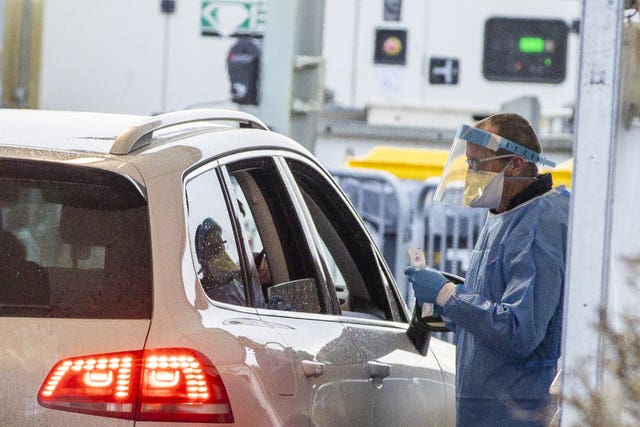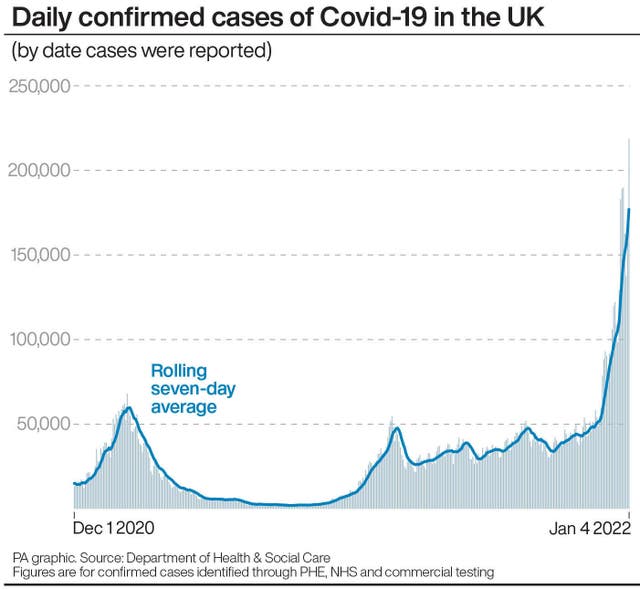Coronavirus testing rules for people without symptoms are to be eased across the UK amid a wave of Covid-19 cases.
Here are the latest rules following Wednesday’s changes:
– What has been announced?
From January 11, asymptomatic people in England who test positive on a lateral flow device (LFD) will no longer require a confirmatory PCR test.
They must still self-isolate immediately.
However, people who have Covid-19 symptoms should still get a PCR test, the new rules state.
A similar system will be implemented in Northern Ireland immediately and in Scotland and Wales from Thursday.

It meant they would have to isolate for longer than seven days – particularly if there were delays in obtaining the confirmatory result.
– Why has this been announced?
The move announced by the UK Health Security Agency (UKHSA) will free up capacity in laboratories for PCR tests for those who have Covid-19 symptoms.
It is a temporary measure while Covid-19 rates remain high across the UK.
An estimated 3.7 million people in the UK had the virus in the week ending December 31, up from 2.3 million in the week to December 23 and the highest number since comparable figures began in autumn 2020, the Office for National Statistics (ONS) said.
Wales’s health minister believes the change will reduce the demand for PCR tests by between 5% and 15%.
Meanwhile Professor John Edmunds, a member of the Government’s Sage scientific advisory panel, said: “This change makes a lot of sense. When the prevalence is high – and it is incredibly high at the moment – almost everyone who tests positive with a lateral flow test will be a true positive.
“There is really no need to confirm this with a PCR, a step that not only wastes time but costs a lot of money and uses up laboratory resources that could be better used elsewhere.”
While levels of Covid-19 are high, the “vast majority” of people with positive results can be confident they have the virus, officials have said.

Yes, people eligible for the £500 Test and Trace support payment will still require a confirmatory PCR to access the help.
People participating in research and surveillance programmes and those at risk of becoming seriously ill, who have been identified as potentially eligible for new treatments, will also require a PCR.
In Wales, those who are in a “clinically vulnerable” group will still need to take a PCR test.
– What is happening with self-isolation rules?
People who receive a positive result on an LFD will be required to self-isolate immediately, without requiring PCR confirmation.
The new change could limit the time staff are off work, as self-isolation begins from the positive LFD test.
UKHSA chief executive Dr Jenny Harries said: “It remains really important that anyone who experiences Covid-19 symptoms self-isolates immediately.
Coronavirus self-isolation rules in Scotland are to be cut from 10 to seven days, similar to the rest of the UK.
It means that if a person has tested positive, they can stop self-isolating after seven days instead of 10 if they receive two negative lateral flow test results on days six and seven.
– What should I do when I take a lateral flow test?
People should log their result on gov.uk, regardless of whether it is negative or positive.
The result should be reported within 24 hours.
According to the Government website, reporting the results “helps scientists track the spread of Covid-19 and spot new outbreaks faster”.






